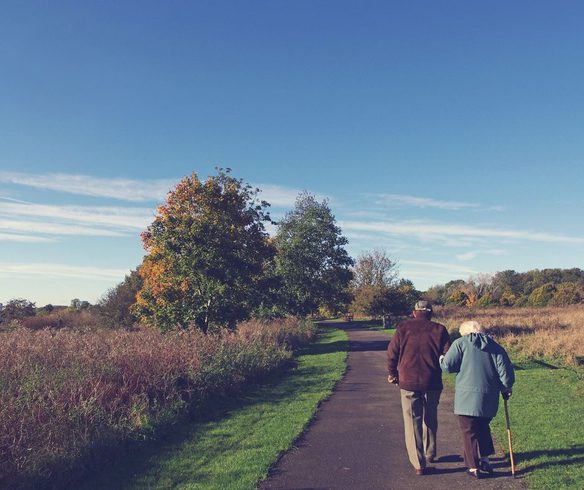Walking with confidence is one of the biggest factors in maintaining independent living as we age. A big change in mobility is often the reason people need support in the home, or else can no longer live at home by themselves.
Loss of confidence, loss of strength and physical changes are the biggest reasons people reduce or stop their walking.
So how do you keep moving as you age?
- Walk more. A very simple and very effective tip. It is not too late to build up your confidence or your strength. Set simple goals, like walking a short distance in your house or an area where you feel safe. If you need to, have a friend or helper nearby. Gradually increase the time you are walking.
- Know why you want to walk more. Is it because you wish to be able to walk to the shops without fear? To be able to meet with friends? Or even to be able to move around your home confidently? Whatever your reason it is important to have a goal to work towards, and motivate you to keep moving.
- Get support from your family and friends. Tell them about your goals and get them involved.
- Exercise. Strengthening exercises targeting some of the main muscle groups in your legs will help improve and maintain your walking. These exercises generally target your ankle plantar flexors (muscles that help you push up on your toes), the muscles for hip extension and flexion, and the knee extensors – which help keep your knees stable when walking. One of our Chartered Physiotherapists can provide a tailored exercise program to target these areas and help keep you walking well.

Remember
If you are interested in booking an appointment with one of our Chartered Physiotherapists OR simply need some guidance, then please give us a call on 021 4633455 or book online below.
We hope you enjoyed this blog by Louise O’Hare, Chartered Physiotherapist
This blog is provided for information purposes only. The content is not intended to be a substitute for professional medical advice, diagnosis or treatment. Seek the advice of your doctor with any queries regarding a medical condition.
